The Rise of Open-Source Self-Hosted Solutions


Are you struggling to maintain control over your business's critical data and applications? Companies are increasingly seeking greater autonomy, security, and customization in their software infrastructure. This growing trend has led to a significant shift towards open-source self-hosted solutions. According to the 2023 State of Open Source Report by OpenLogic and the Open Source Initiative, 80% of surveyed companies reported increased use of open-source software over the previous year.
Gartner also predicts that by 2025, 60% of enterprises will adopt privacy-enhancing computation technologies to protect data in use, up from less than 5% in 2021. Self-hosting is one of these core data protection approaches. We'll explore what's driving this change and how your business can benefit from self-hosting its critical applications.
Before embarking on the self-hosting journey, it's crucial to consider several key factors. These include the level of control and customization needed, data security requirements, and available IT resources for maintenance and updates. While self-hosting can often be more cost-effective over time compared to SaaS solutions, it's essential to ask the right questions before taking this path.
To gain deeper insights into this trend, we interviewed over 100 developers across various industries. Our goal was to uncover the motivations driving this shift, the benefits and challenges of self-hosting and open source, and the role of emerging technologies such as AI and low-code platforms in shaping this landscape. Through this process, we've discovered how self-hosting and open source are empowering businesses to take control of their digital ecosystem.
This article is an excerpt from the eBook: "The Rise of Open-Source Self-Hosted Solutions". Which is designed to guide you through the world of self-hosting, whether you're an IT leader, software architect, or developer. It's divided into sections covering the importance, benefits, and challenges of self-hosting. Then, we'll provide practical guidance on how Appsmith can serve as a suitable solution for your next self-hosted business application.
Survey demographics
The survey respondents come from a broad range of industries including technology, education, manufacturing, and finance. The majority of respondents hold roles such as engineers, DevOps, managers, and senior-level positions. The length of time respondents have been in their current roles varies, with over half having more than four years of tenure.
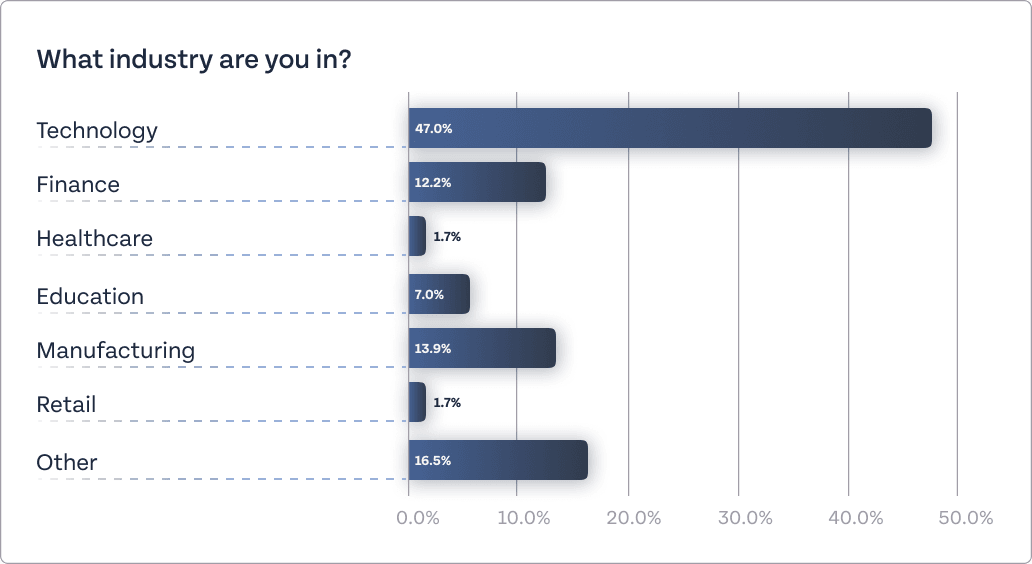

Current adoption of self-hosting
One of the key findings from the survey reveals a strong preference for self-hosting applications on-premises, on private servers, or through managed hosting services. Over 75% of respondents indicated that their organizations choose to self-host web applications, databases, and internal tools.
While this trend is most pronounced in the technology sector, it also extends significantly to other industries such as finance and manufacturing. These industries usually have stringent data protection regulations and may prefer self-hosting to ensure full control over sensitive data. The technology sector usually requires highly specialized software solutions, so they may opt for self-hosting to tailor applications to their specific requirements.
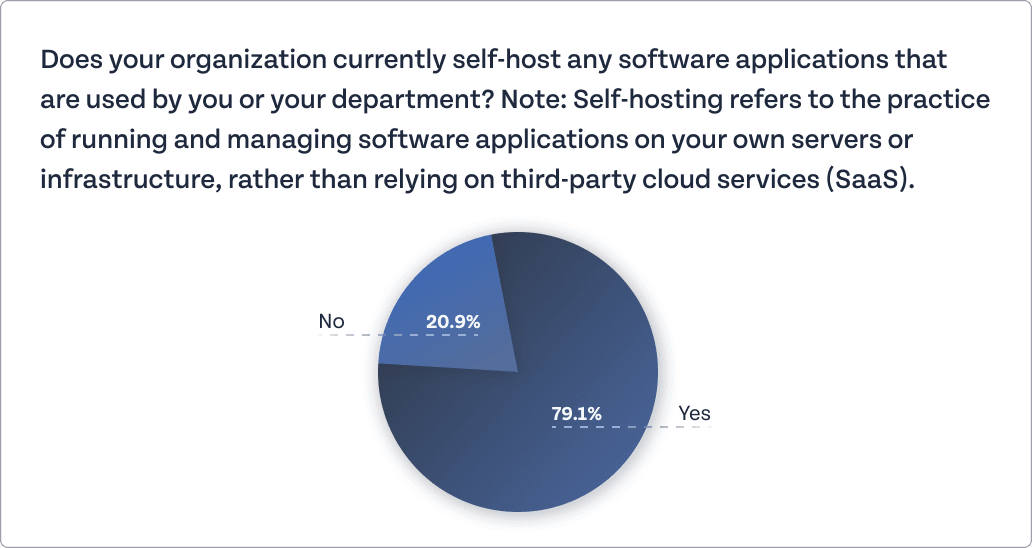
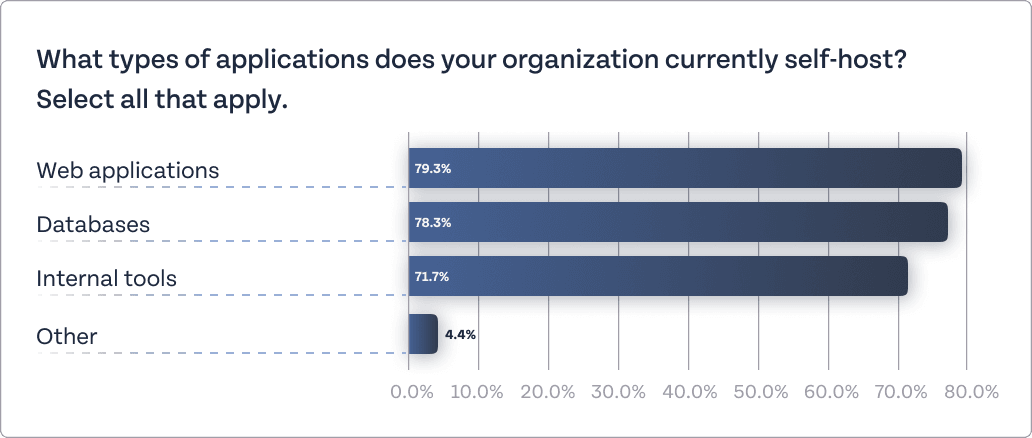
The motivations driving the shift to self-hosting
The motivation behind the shift to self-hosting is multi-faceted. The primary factors influencing this decision include cost savings, data control, security, customization, and flexibility.
Approximately 70% of respondents cited cost savings as a major motivator, and a similarly-sized group cited data control. Security and customization were also significant factors, each cited by around 57% of respondents.
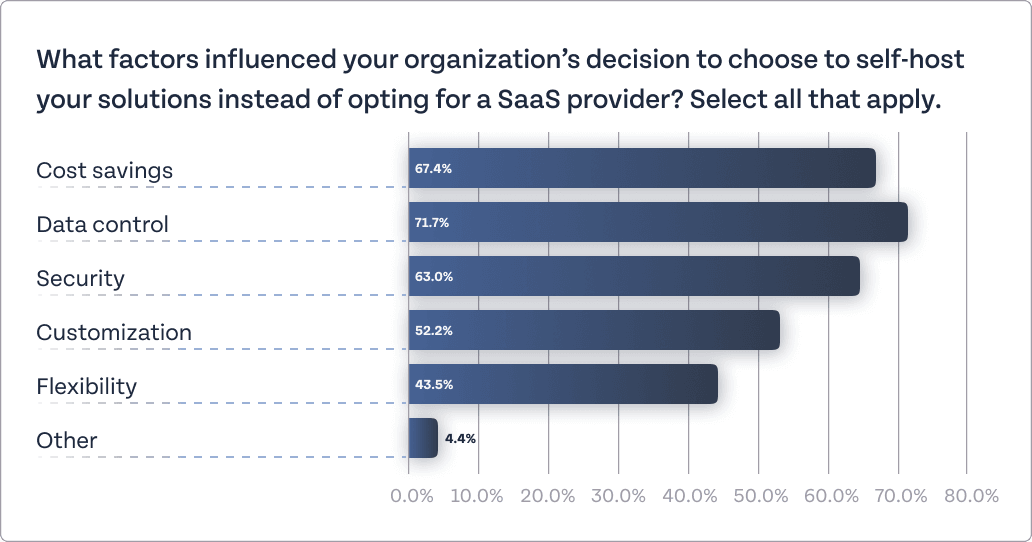
These motivations could reflect a growing concern over the costs and risks associated with third-party cloud services. Organizations are increasingly looking to self-host to mitigate these risks and achieve a more controlled and customizable environment.
One of the main concerns with off-the-shelf solutions is the cost. These solutions often come with high upfront licensing fees, ongoing subscription costs, and additional expenses for customization and support. Over time, these costs can add up, making off-the-shelf solutions less affordable for many organizations. This financial burden can be a significant issue, especially for smaller companies with limited budgets.
By self-hosting, businesses can tailor their environments to meet specific security and customization needs (e.g., developing workflows unique to their business, integrating custom features unavailable in off-the-shelf solutions), reduce dependency on external providers, and potentially lower long-term expenses.
Case study: GSK chooses Appsmith for a self-hosted app to patch 3,500 Linux servers in one sprint
GSK, a global biopharma company with over 120,000 employees, chose to self-host Appsmith to build internal tools due to its strong security features and flexibility. Matt, the Director of Automation at GSK, needed a solution that could be deployed behind their firewall and offer complete control over their data.
Using Appsmith, Matt's team built an application to manage the patching process for GSK's fleet of 3,500 Linux machines. This tool drastically reduced the time spent on patching and improved overall efficiency. Matt’s team valued Appsmith's easy installation process, its ability to integrate with existing systems, and the support for custom security measures.
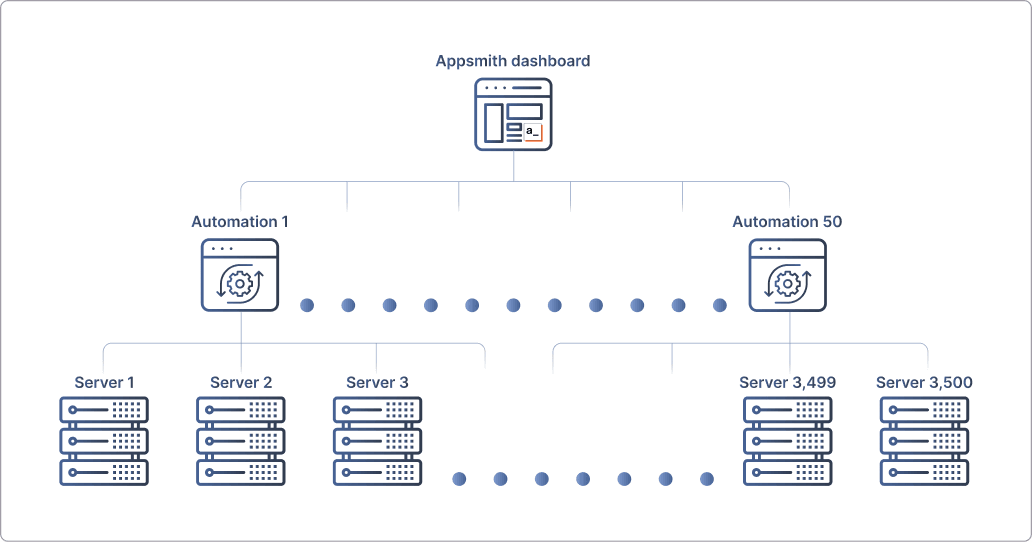
The self-hosted nature of Appsmith allowed GSK to maintain stringent security standards while benefiting from a low-code platform's rapid development capabilities. Self-hosting can provide both the security and control needed by large enterprises, along with the flexibility to create custom internal tools efficiently.
For more details on how GSK leveraged Appsmith's self-hosted solution, read the full case study here.
How has open-source software (OSS) influenced self-hosting practices?
Open-source software (OSS) refers to software that is released with a license that allows anyone to view, modify, and distribute the source code. Users can adapt the software to their needs, contribute to its development, and share their improvements with the community.
After the Linux Foundation, one of the biggest open-source software foundations, was established in 2000, there has been a significant increase in the adoption of open-source software (OSS). This growing trend has been observed across various industries, reflecting the increasing recognition of the benefits that OSS can provide.
We explored how open source adoption has influenced organizations' decisions regarding self-hosting. Around 80% of our respondents shared that this increased adoption has influenced their decision to self-host their business solutions.
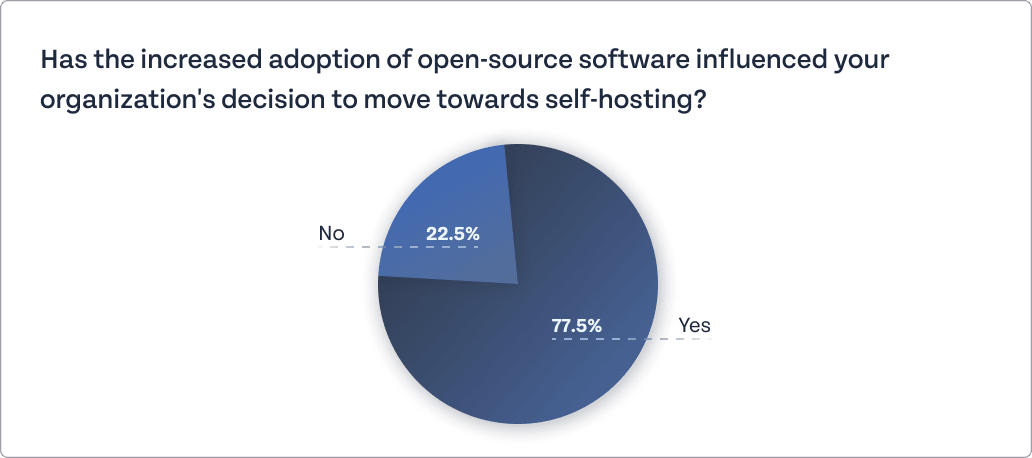
The main two reasons why open-source software influences businesses to self-host are increased flexibility and customization options, and improved security and control over data.
Open-source software provides flexibility and customization by allowing developers and organizations to modify the source code to meet specific needs and integrate seamlessly with existing systems.
Security and control over data are two aspects that influence self-hosting open-source solutions, since businesses can inspect the code for vulnerabilities, implement their own security measures, and maintain data on their own infrastructure, reducing reliance on third-party providers.
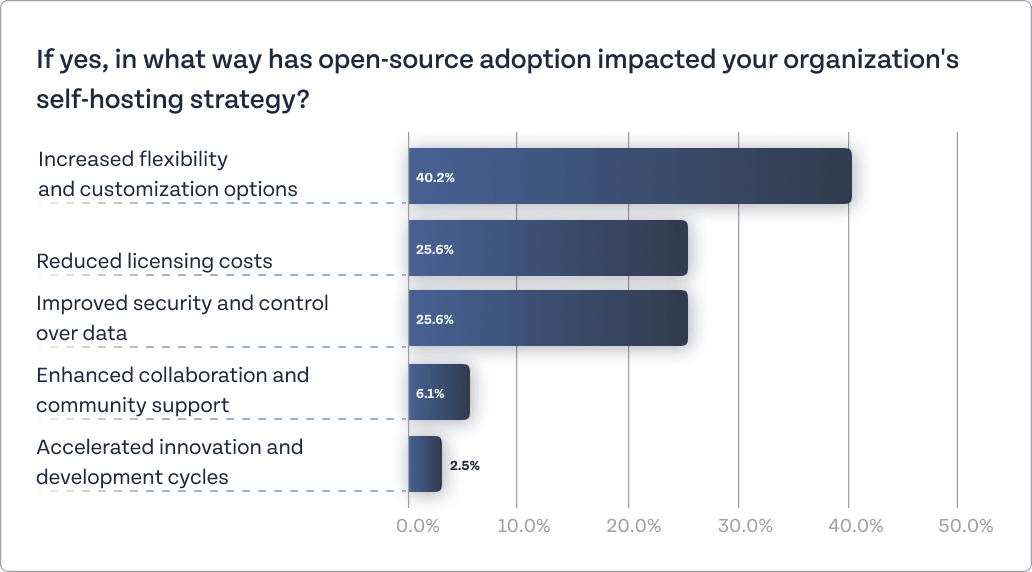
Gain a deep understanding of the current open-source self-hosting landscape
Over 100 developers and IT professionals shared their insights on self-hosting and open-source solutions, revealing key motivations, benefits, and challenges.


